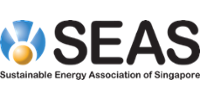Event Details
Registration is still available.
Floating photovoltaic (FPV) systems offer great opportunities, particularly for countries with land constraints and available water bodies, like Singapore, Korea, Taiwan, Japan or the Netherlands. Despite the COVID-19 pandemic, Floating Solar has continued its expansion, mainly in Asia and Europe. To date, the cumulative installed global capacity has surpassed 6 GWp. Although it is still considered a relative new technology, FPV systems have rapidly gained popularity worldwide where they have been installed under different conditions. In Singapore, these systems are of particular interest as can be noticed by the fact that the largest PV system in this country, is indeed a FPV system (60 MWp). Thus, more FPV deployments are expected locally and worldwide.
Objectives
To provide guidance on the key characteristics of FPV, including their strengths and challenges as well as insights on how these systems are expected to be installed and operated. With this training, the participants will be able to gather more knowledge on FPV to be applied in real projects.
Course Outline
- FPV status in Singapore and Worldwide
- Key characteristics of FPV systems
- Performance analysis of FPV systems
- System configuration trade-offs
- Operation and maintenance of FPV systems
- FPV related standards
- Environmental impacts from FPV systems
Target Audiences
Professionals and individuals involved in the renewable energy sector, particularly those interested in understanding and implementing solar photovoltaic (PV) systems on water bodies.
The course aims to provide knowledge and skills specific to floating solar technology, its design considerations, installation, operation, and maintenance. The target audience may include:
1) Renewable Energy Project Developers: Individuals or organizations involved in developing solar energy projects and seeking to explore the potential of floating solar installations.
2) Solar PV System Installers and Engineers: Professionals responsible for the design, installation, and operation of solar PV systems, interested in expanding their expertise to include floating solar.
3) Environmental Consultants: Individuals providing environmental impact assessments and advice related to floating solar installations.
4) Energy Managers and Consultants: Professionals focused on energy management and efficiency, seeking to understand the benefits and challenges of floating solar technology.
5) Water and Reservoir Management Authorities: Individuals responsible for managing water bodies and interested in exploring floating solar installations as a complementary use of space.
6) Researchers and Academics: Individuals involved in research and academia, studying floating solar technology and its environmental, technical, and economic aspects.
7) Project Managers: Professionals responsible for overseeing solar energy projects, interested in understanding the considerations specific to floating solar installations.
8) Regulatory and Compliance Professionals: Individuals ensuring compliance with regulations and standards related to solar energy and water bodies.
9) Investors and Financial Analysts: Professionals evaluating the financial viability and investment potential of floating solar projects.
10) Government Officials and Policy Makers: Individuals involved in developing renewable energy policies and regulations, interested in understanding the potential and impact of floating solar technology.
Certificate
All participants will receive a Certificate of Attendance from SEAS upon completion.
SCEM Participants will be awarded with 6 PDU Points



